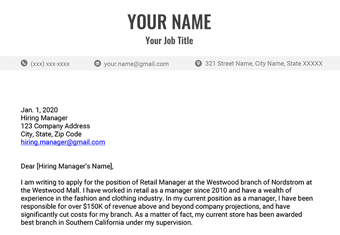Can an employer rescind a job offer after a credit check?
Yes, in most states, an employer can rescind a job offer after conducting a credit check. This is a relatively common practice; according to a survey conducted by the Society for Human Resource Management (SHRM), 9% of employers consider an applicant’s credit history to be one of the main factors affecting their final hiring decision.
Which positions do employers conduct credit checks for?
Employers can check your credit for any position unless local or state law prohibits it. A 2018 study found that 16% of employers run credit checks on all candidates.
However, employers are more likely to conduct credit checks for positions that involve financial responsibilities or access to confidential information, such as accounting roles or any position that requires a security clearance.
If you’re applying for one of these positions, make sure that your credit report shows a good payment history. You should also make sure that your resume is up to date with relevant qualifications, like in the examples below:
- Banking
- Accounting
- Executive roles
- Human resources (HR)
- Administrative roles
Why would your employer rescind your job offer after checking your credit?
If your prospective employer rescinded your job offer after checking your credit, then your credit report probably contains a lot of late payments or other negative items like foreclosures or repossessions. Having a lot of negative marks on your credit report suggests a pattern of financial irresponsibility, which can be a liability in an employee.
Employers will also check your credit to see whether you’re deep in debt. If you are, that opens up concerns that you might be vulnerable to bribery, especially if you’re applying for an executive-level position.
How to respond to a rescinded job offer after a credit check
If an employer withdrew your job offer because you didn’t meet their credit requirements, take the following steps:
1. Talk to your employer
There’s a chance you’ll still be able to persuade your prospective employer to hire you if you explain why there are derogatory items on your credit report. For example, many people end up in debt after getting hit with steep and unexpected medical bills. If you have a good reason for your financial troubles, tell them.
2. Find out if the job offer rescindment was fair
If you suspect that your employer set higher credit requirements for you because of your race, color, religion, sex, or disability, file a complaint with the Equal Employment Opportunity Commission.
You might also be able to sue your prospective employer for damages (like relocation costs) if they rescinded your job offer after promising you the position. Cases like this can be difficult to prove, so contact an attorney to find out if you have grounds to make a claim.
3. Check your credit report
If you’ve had a job offer rescinded after a credit check, it’s also good practice to check your credit reports for errors. These can range from payments that were incorrectly reported as late to debts that actually belong to someone else (often someone with a similar name or Social Security number).
If you find out that a credit reporting error costs you a job offer, contact your prospective employer and explain the situation to them. Whether they’re willing to reconsider their decision or not, make sure to dispute the errors on your credit report with the credit bureaus so that they don’t cost you other jobs in the future.
You can check your credit report for free
When you fail a credit check, you usually have 60 days to get a free credit report from the credit bureau—TransUnion, Equifax, or Experian—that provided the report to your prospective employer. However, due to the COVID-19 pandemic, the bureaus are currently offering free reports every week at AnnualCreditReport.com.
4. Start applying for other jobs
If your employer rescinds your job offer and you have to apply for other jobs, it’s worth explaining any derogatory marks on your credit report early on in the application process (potentially in the first or second interview).
Hopefully, you’ll be able to favorably impress your prospective employer by addressing it, and at minimum, you’ll know much sooner how likely you are to get the job. And there are many ways to find and apply for additional work if you find yourself looking again. Lensa even uses AI to make your search that much easier.
How to prevent your employer from rescinding your job offer
To reduce the chances of your employer rescinding your job offer after a credit check, you need to maintain a good credit history.
To maximize your credit, follow these tips:
- Always pay your bills on time: To show prospective employers that you’re managing your accounts responsibly, establish a track record of on-time payments. You should also pay off your overdue accounts to prevent lenders from reporting missed payments to the credit bureaus.
- Keep your credit card balances low: According to VantageScore, it’s best to use less than 10% of your available credit. In addition to boosting your credit score, this will show employers that you’re financially stable.
- Consider consolidating your debts: If you have multiple high-interest credit cards, consider paying them off with a low-interest debt consolidation loan. Such a loan simplifies your bills and reduces the total amount you have to pay, making it easier to keep late payments from appearing on your report.
Takeaway: In most states, employers can rescind a job offer after checking your credit.
- Employers can check your credit in most states. However, 11 states, including Colorado and Washington, place restrictions on when employers can check your credit.
- Your prospective employer is more likely to rescind your job offer if you have excessive debts or late payments on your credit report.
- If you have an offer rescinded, check for and dispute any errors on your credit report to stop them from hurting your future job prospects.
- If you discover serious errors, reach out to the employer that rescinded your offer. There’s a chance they’ll reconsider.
- To prevent your employer from withdrawing your job offer, always pay your bills on time and minimize your debts.







